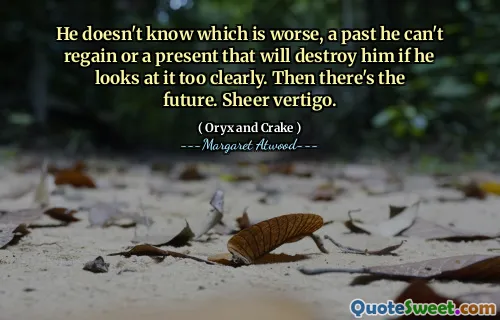Watch out for art, Crake used to say. As soon as they start doing art, we're in trouble. Symbolic thinking of any kind would signal downfall, in Crake's view. Next they'd be inventing idols, and funerals, and grave goods, and the afterlife, and sin, and Linear B, and kings, and then slavery and war. Snowman longs to question them-who first had the idea of making a reasonable facsimile of him, of Snowman, out of a jar lid and a mop? But that will have to wait.
In "Oryx and Crake," the character Crake warns that the emergence of art signifies a societal decline. He associates symbolic thinking with a series of negative developments, including the creation of idols, funerals, and complex social hierarchies leading to war and slavery. Crake believes these constructs will ultimately degrade humanity, marking the beginning of their downfall.
Snowman, the protagonist, reflects on this perspective, pondering the origins of human creativity and the drive to replicate reality, as seen in the example of how someone crafted a likeness of him from simple items. Although he is intrigued by these thoughts, he realizes that exploring these questions must be deferred for now, highlighting a tension between creativity and survival in a changed world.






